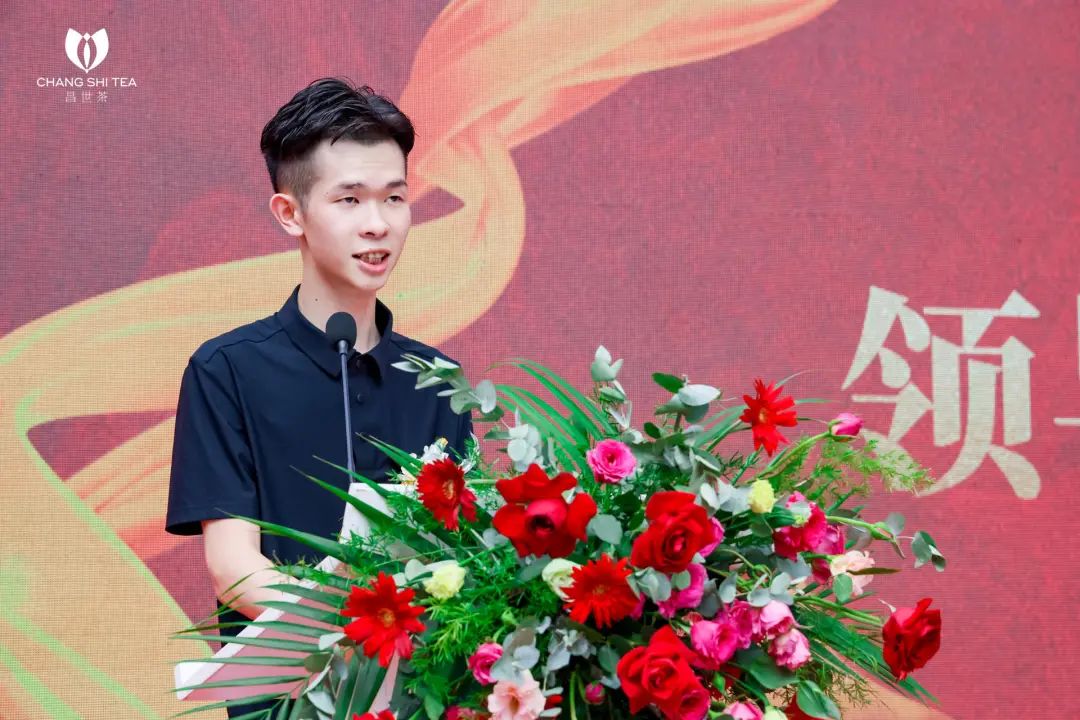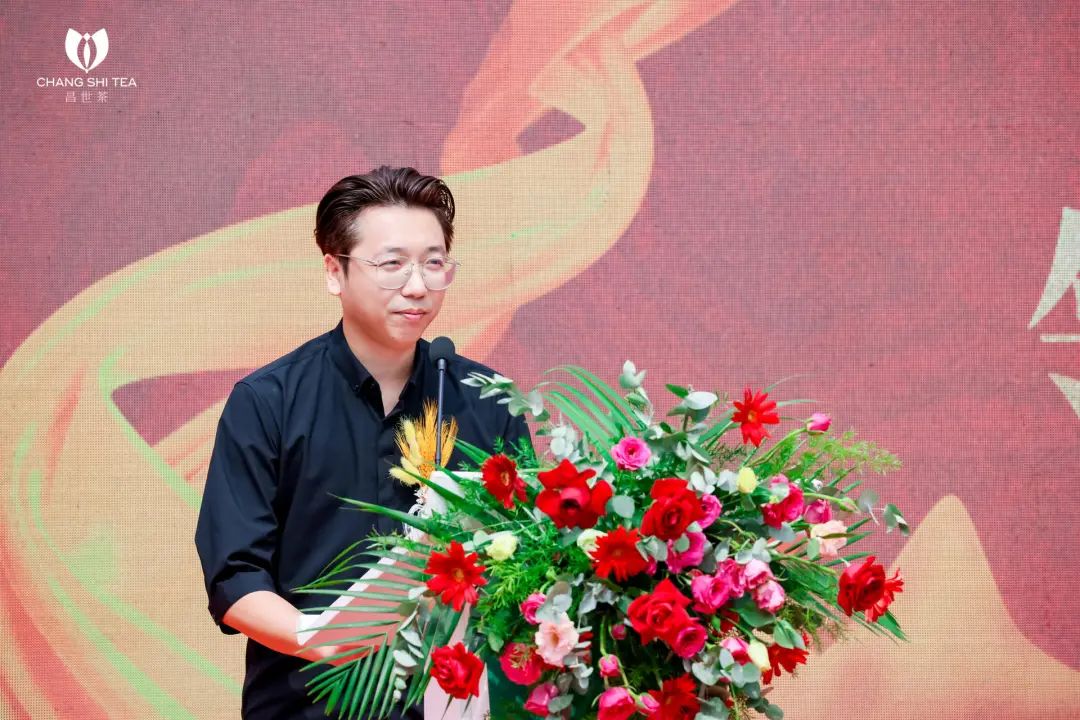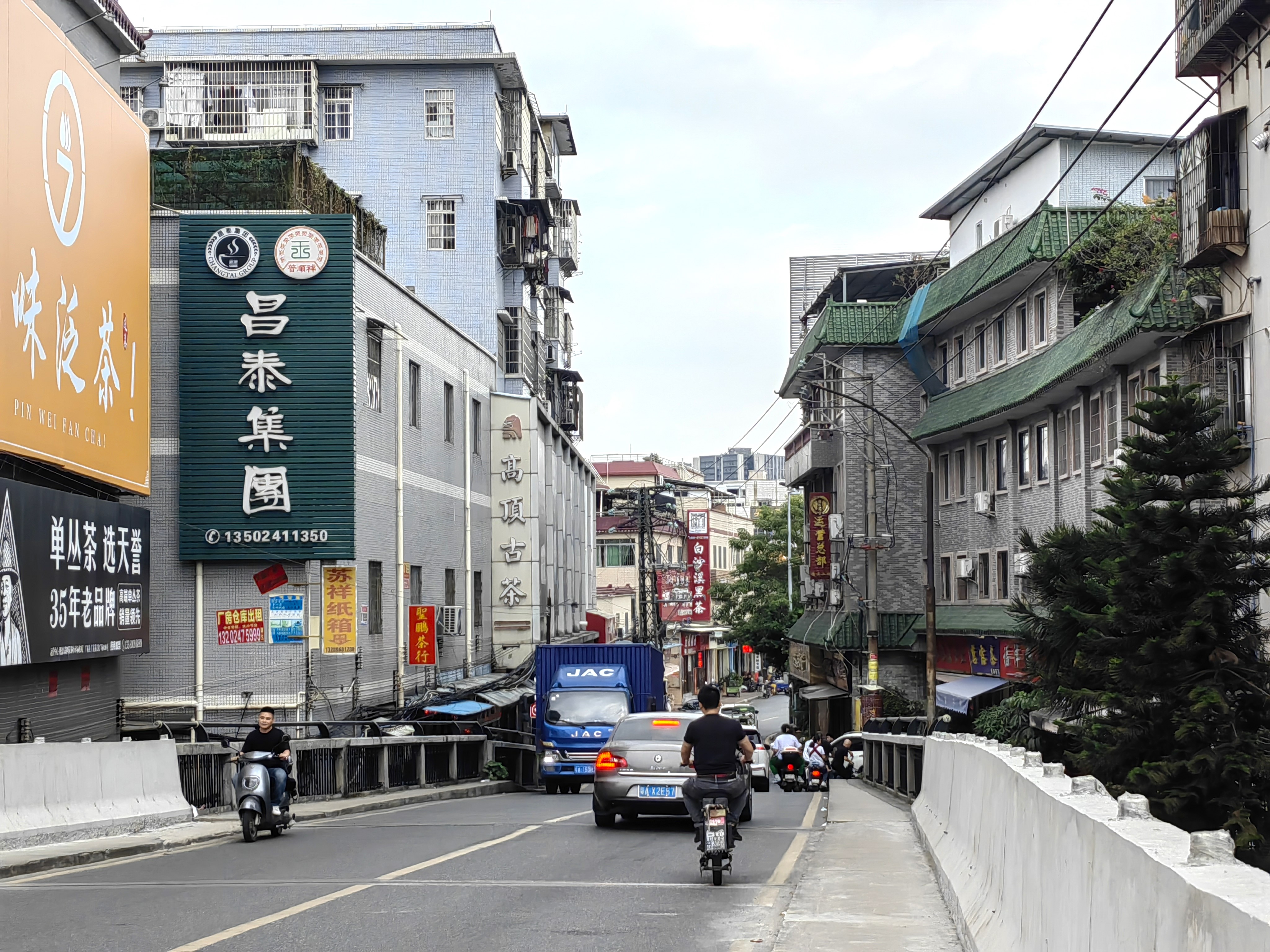Compacted into bricks for market, centuries ago tea was used as a kind of cross-border currency. Today, a highly unregulated market is overseen by no one.

The closed Changshi Tea Shop in Fangcun on Monday. Photo by Zhang Xilong
By ZHANG Xilong
Fangcun is a wholesale tea market in west Guangzhou, China’s seething southern metropolis. The market occupies an area no bigger than one of the city’s mega rail terminals but is in the eye of the storm that currently rocks China’s pu’er tea market. More than 80 percent of all pu’er tea goes through Fangcun.
Pu’er tea is produced almost exclusively in Yunnan province, with a recorded history reaching back over 2,000 years. For much of the time it has been a preferred drink of the rich and famous, emperors and poets. Compared with green or red tea, pu’er can be stored for a very long time and gets better with age.
Historically, tea was compacted into bricks for market, and these bricks were sometimes used as a kind of cross-border currency. Today, the term “tea brick” still refers to exactly that, but it is also an ad-hoc commodity, traded like most other agricultural commodities with a strong (also ad-hoc) derivatives market.
The tea futures market, however, is and always has been, highly unregulated. It’s not overseen by anyone except the participants. If your word turns out not to be your bond, then you can find yourself in all kinds of ad-hoc, irregular trouble.
Such are the historical connections of the tea trade that people remain intrigued by the romance, drama and outright Wild-Westicism of it all. The latest episode of the soap opera takes place in and about a tea shop named Changshi, where half a billion yuan (US$70 million) seems to have gone missing.
In early December, Changshi tea brick lost 96 percent of its value overnight. The price dropped like a stone from 50,000 yuan to 2,000 yuan. At that price, there is nothing to do but drink the stuff, but “investors” clung on in the hope that if what goes up must come down, then perhaps the opposite was also true.
HE Fangfang is one of the investors. She’s hardly Warren Buffet. Her own tea shop is just 100 meters away from Changshi. She bought four Changshi tea bricks two weeks ago and now has lost at least 200,000 yuan.
The Pu’er futures market is not housed in a 400-year-old traditional building, nor is it on the 400th floor of a shining glass and steel tower. It’s a WeChat group.
The system is a form of open-outcry. Merchants shout about numbers and quantities. Data is released. Rumors circulate. Buyers shout back and the money flies around instantly, again via WeChat.
Tea merchants are brought into the group by various means, but in theory, everyone knows everyone else and the atmosphere suggests continuous profit.
Previously, this functioned very much like a traditional agricultural commodities market, where physical delivery was an important part of the process. Growers or packers would repurchase the tea at a higher price. Cash and tea flowed equally smoothly.
In September, Changshi began selling. More and more people joined the WeChat group, where CHEN Shihong, the 21-year-old president of Changshi, welcomed them with red envelopes and mooncakes. No one paid much attention to the fact that Changshi was born just a few months before.

WANG Zhiwen is a battle-hardened tea merchant who has seen it all or thought he had. But it was Wang who bought the last batch of Changshi tea on November 29 and paid the highest price.
Speculators like Wang are playing for a quick buck overnight - standard practice in regulated futures markets. More than often, market makers or cowboy traders scoop up overnight excess in the morning, but probably not if the price has collapsed by an insane amount.
Corporate buyer LIU Yuan said there are about 300 like him involved and more than 700 individual investors who bought Changshi tea through cowboys: “As far as I know, more than 500 million yuan is involved. Similar scams popped up three times already this year, but the amount was nothing in comparison.”
Furious merchants stormed the Changshi store where they found the shutters locked and sketchy “securities guys” picking their teeth. From the safety of his WeChat bunker, in true billionaire style, Chen assured everyone that everything was fine and he “would rise again."
After the fuss broke out, the Fangcun subdistrict asked all parties to calm down and negotiate. Chen and his lawyer agreed to talk to corporate complainants (all 300 of them) one on one.
“I don’t think he could have pulled it off alone,” He said of Chen. “He is certainly very level-headed and self-assured for his age, but this is a well-planned operation that has taken time, knowledge and assistance, even if the contracts are all in his name.”
Open data shows that Changshi Tea is owned by CHEN Wenfan and LIU Jiahao, but Chen Shihong is nowhere to be found.
“The lad is just the fall guy, someone else is behind all this,’ said Liu, who pointed his finger at LI Yecong, a mysterious name on the bank account where Liu wired his money.

Li showed up at the opening of the Changshi tea shop, as a representative of Van Kai Development Group, a local real estate developer, and hasn’t been seen since. When Jiemian News called Van Kai, the receptionist quickly said the company never had an employee named Li Yecong and hung up.
But when another media outlet, the Economic Observer called, they were told that Li was a “grassroots” employee.
The same telephone number was shared by three companies: Van Kai, Golden Bay (Van Kai’s parent company) and property developer Wanshunyuan. Li Yecong, according to the company’s registration information, is the legal person of Wanshunyuan.
It could all be a coincidence. Apart from the opening ceremony, nothing connects Changshi with Van Kai. The only other thing they have in common is that both are in deep trouble.
Van Kai’s properties are in lower-tier cities where no one is buying a new home in the current market. A Van Kai development in Neijiang, a small town in Sichuan Province, has spent more than 600 million yuan so far. Sales started in July 2021 and many homes are still waiting for buyers. Phase two of the project is scheduled to begin this month.
Chen Shihong styled himself as the Genghis Khan of the tea business.
“Of course, his silly nickname didn’t impress me,” said He Fangfang. “But his shop was next to mine, and I watched people come to buy tea bricks and sign contracts every day.”
She said that cowboys kept offering higher prices for her bricks, and many people she knew made money. Changshi set the bar quite high at first, only those with rich experience and enough money could get the bricks. Merchants came to sign contracts with them but were turned away.
“The tea is average or even below average, so who’s going to drink it for real?” He said, exposing some of the flaws in her own thinking. “At the time, it was hard to get a Changshi brick.”
Liu Yuan has more than 150 bricks lying in his warehouse. Another 200,000 yuan of bricks are locked up in the Changshi shop, or so he thinks.
Everybody knows this is a game of hot potato, but no one ever thinks they will be the last in line. It’s more like a loophole in the gambling law than a question of tea. No one has been taken away by the police yet.
The Changshi store may be locked-up, but upstairs, Chen continues talking to dissatisfied customers. In their contract, Changshi never promised to repurchase the bricks. But, still generous to a fault, Chen is willing to buy them back at a small premium to the current price.
Those who bought their bricks through third-party cowboys have no claims whatsoever. Changshi owes them nothing. Almost 500 people claim to have called the police, but nothing obvious has transpired.
Whether Changshi's behavior is criminal or not depends on showing that Changshi manipulated prices in secret, said HAO Dahai, a senior partner of Shanghai Huawan Law Firm. It’s far from an open-and-shut case. If Changshi promised to repurchase the bricks, there may be a case of illegally absorbing public deposits, if enough people are involved.

Dealers in Fangcun no longer see tea as a commodity but as a speculation tool. This has happened there before with other products - jade and whisky for example - numerous times.
These types of trading platforms, without approval, lack supervision. The fairness, justice and transparency of the transactions cannot be guaranteed. But tea merchants Liu and Wang will continue speculating in Pu’er tea.
“Someone invest in stocks, some try equity funds, why can’t we trade tea?” said Wang. Well, he can, but he can’t then go crying for help when the hot tea burns his fingers.
On Tuesday, Changshi issued an announcement on social media, saying it is not “going away,” which must come as a great relief. Just as the PR pours out of every collapsing enterprise, Chen and all employees have been “working around the clock” to make sure everyone gets what they deserve.
In the posting, Chen Shihong’s name was misspelled. Or perhaps not. In the view of many tea merchants, none of the names were ever real.